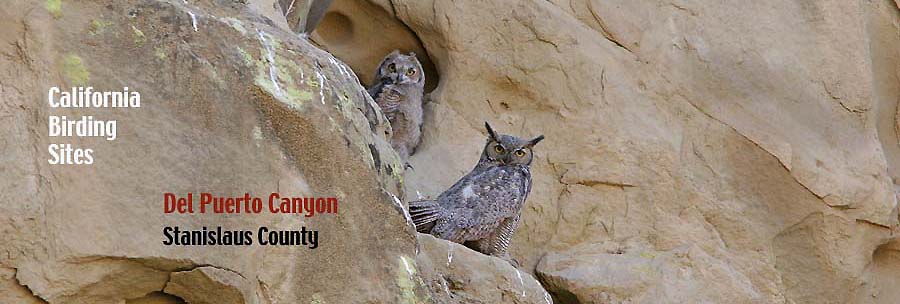
a web page by Don Roberson |
Our most recent visit (these photos) was on 16 May 2009. Not only were there two fledgling owls with an adult on the rock, but we watched a Say's Phoebe nest in one small cave; had a singing Rufous-crowned Sparrow (below left) at the rock's base; and along the riparian in the creek across the road we found four migrant Willow Flycatcher (below right), two of which were males giving fitz-bew songs. |
||
|
||
 |
||
|
||
For me the highlight of this day was getting this digital snap of California Whipsnake (below), the fast and elusive "chaparral snake" that has heretofore eluded every effort to point a camera in its direction. Here in western Stanislaus County we were not too far from the range of Alameda Whipsnake Masticophis lateralis euryxanthus — an endangered subspecies of California Whipsnake found only in Contra Costa and Alameda counties — and this one looks quite orangey, a lot like that subspecies. It differs in lacking the orange color into the face, and in having a narrower side stripe, according to Gary Nafis [see his website for details on all California herps]. Still, this is one spectacularly beautiful snake! |
||
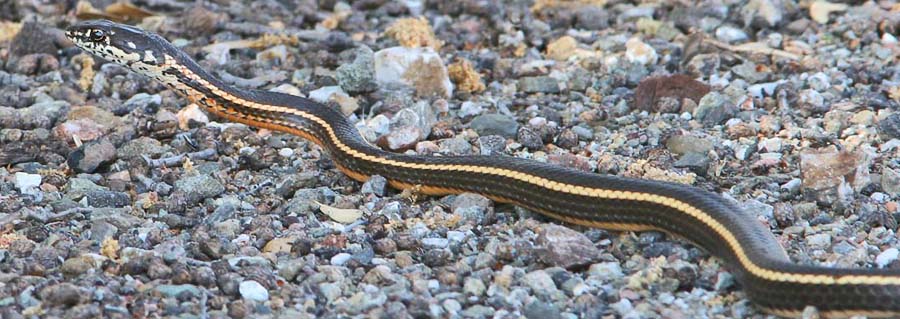 |
||
| Photos: All photos © Don Roberson, all rights reserved. |
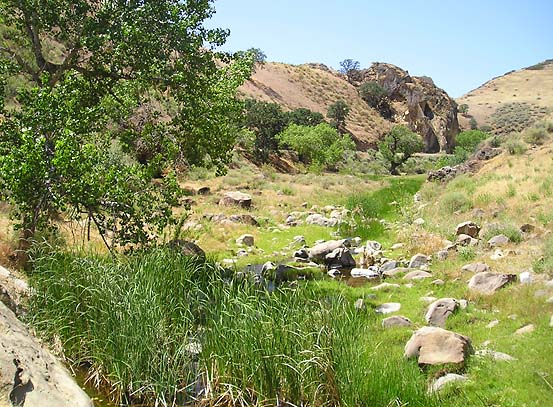 Del Puerto Canyon
slices through the eastern foothills of the Diablo Range in western
Stanislaus County. Del Puerto Canyon Road provides easy access to
birders and naturalists; a stop-by-stop description of the primary
birding sites is on the
Del Puerto Canyon
slices through the eastern foothills of the Diablo Range in western
Stanislaus County. Del Puerto Canyon Road provides easy access to
birders and naturalists; a stop-by-stop description of the primary
birding sites is on the 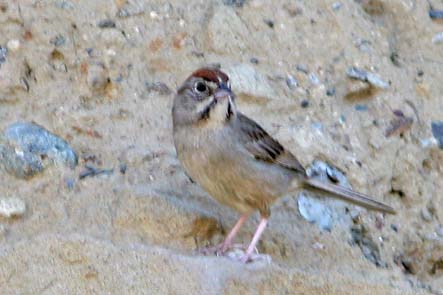
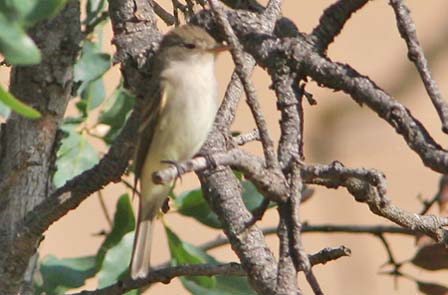
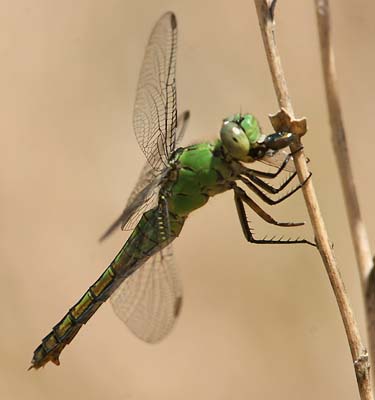 Rita and I enjoyed several pairs of Green Heron
along the creek (above). There was abundant birdsong everywhere along
the route. There is access to the creek itself below Frank Raines Park
and a few other sites. We had a fine collection of odes (dragonflies
& damselflies) along the creek, including this Western Pondhawk (left) devouring a small insect. In the creek itself, tandems of Northern Bluet (below) and several other damsels were frantically depositing eggs.
Rita and I enjoyed several pairs of Green Heron
along the creek (above). There was abundant birdsong everywhere along
the route. There is access to the creek itself below Frank Raines Park
and a few other sites. We had a fine collection of odes (dragonflies
& damselflies) along the creek, including this Western Pondhawk (left) devouring a small insect. In the creek itself, tandems of Northern Bluet (below) and several other damsels were frantically depositing eggs. 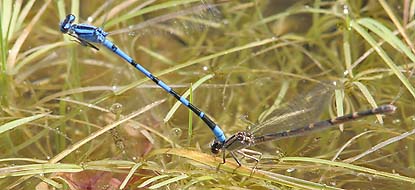
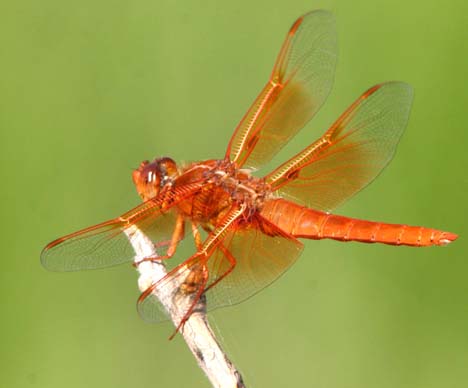 Flame Skimmer
(male on perch, right) was the abundant large dragonfly along the
route. We also watched a Coyote trotting uphill with a Black-tailed
Jackrabbit that was almost too big for it to carry, and a Coachwhip
snake got away down a rodent burrow before it could be caught on film
(er, digital image actually).
Flame Skimmer
(male on perch, right) was the abundant large dragonfly along the
route. We also watched a Coyote trotting uphill with a Black-tailed
Jackrabbit that was almost too big for it to carry, and a Coachwhip
snake got away down a rodent burrow before it could be caught on film
(er, digital image actually).